The following scholars will take part in the workshop (April 10, 2021):
Prof. Michael Gordin
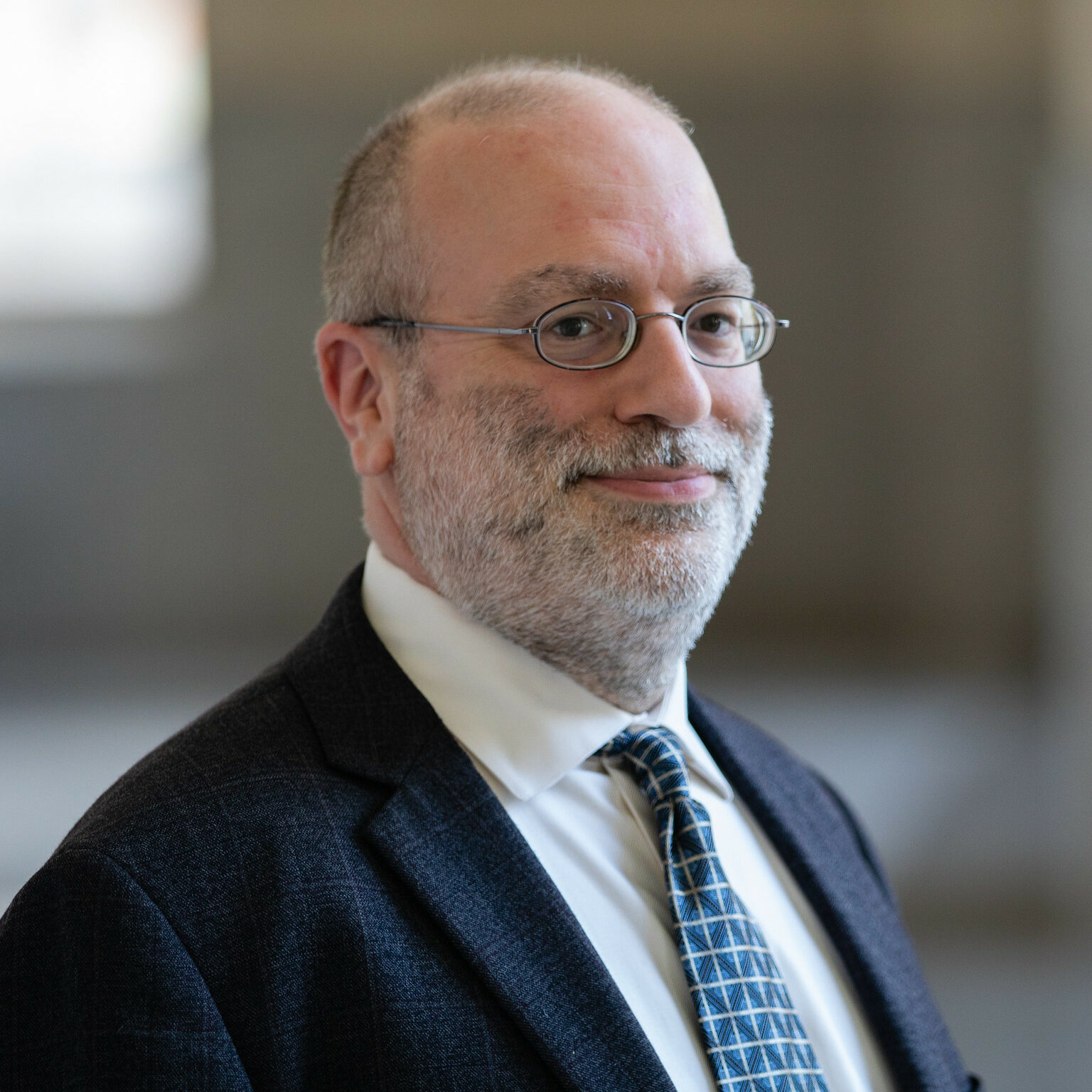
Michael D. Gordin is Rosengarten Professor of Modern and Contemporary History and Director of the Society of Fellows in the Liberal Arts at Princeton University, where he specializes in the history of modern science. He came to Princeton in 2003 after earning his A.B. (1996) and his Ph.D. (2001) from Harvard University, and serving a term at the Harvard Society of Fellows. In 2011 he was awarded a National Endowment for the Humanities Fellowship and was named a Guggenheim Fellow. In 2019, he was elected as a member of the Leopoldina, the National Academy of Sciences of Germany. He has published on the history of science, Russian history, and nuclear weapons.
Professor Gordin is currently working on two book projects. The first is On the Fringe: Where Science Meets Pseudoscience, a survey of this controversial topic, to be published by Oxford University Press in Spring 2021. The second is a history of what happened to global science after the collapse of the Soviet Union in 1991. This latter history traces the role of science in perestroika, glasnost, and Gorbachev’s Soviet Union, as well as following the paths of Soviet scientists in the successor states to the Soviet Union, the former Communist bloc, and the West (especially the United States, Germany, and Israel) in the ensuing decades.
Relevant Publications:
- Einstein in Bohemia. Princeton: Princeton University Press, 2020.
- “Wissenschaftssprache und Exil: Physiker zwischen Englisch und Deutsch in der NS-Zeit.” In Flucht, Exil, Migration: Sprachliche Herausforderungen. Ed. Sabine Fiedler and Cyril Brosch. [1. Edition], 105–118. Leipzig: Leipziger Universitätsverlag, 2018.
- “Introduction: Hegemonic Languages and Science.” In Isis 108 Nr. 3, 2017, 606–611.
- Scientific Babel: How science was done before and after global English. Chicago: The University of Chicago Press, 2015.
- Red cloud at dawn: Truman, Stalin, and the end of the atomic monopoly. 1. ed. New York: Farrar Straus and Giroux, 2009.
Dr. Spencer Hawkins
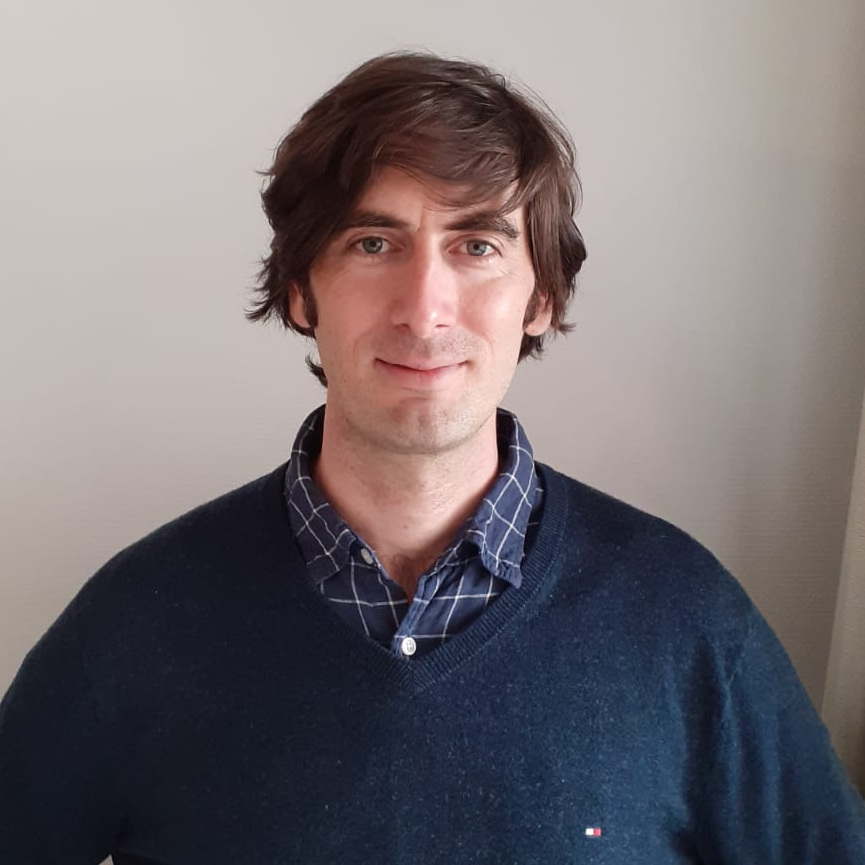
Spencer Hawkins is a Postdoctoral Research Fellow (wissenschaftlicher Mitarbeiter) in the Department of Translation, Lingusitics, and Cultural Studies at the Johannes Gutenberg University of Mainz. His dissertation included the production of a historical-critical translation of Hans Blumenberg’s Das Lachen der Thrakerin into English (The Laughter of the Thracian Woman, Bloomsbury 2015). His research deals with topics in Translation Studies, Cultural Studies, and intellectual history. At the moment, he is writing a book on the translation history of German-language philosophical texts into English. His burgeoning new project deals with the development of English as a lingua franca in academic work and with the self-translation of emigrated academics from Central Europe into the English-speaking world.
Relevant Publications:
- “‘Good translating is very hard work:’ Karl Popper, translation theorist in spite of himself.” In Target, forthcoming.
- “The English of Exile: The Cultural and Linguistic Self-Translations of German-speaking Philosophers During and After World War II.” In Chronotopos. Special Issue: Translation and World War II, 2020, 32-49.
- “Undisciplinable: The Role of Translation Studies within Interdisciplinarity in the United States.” In Transfer: revista electrónica sobre traducción e interculturalidad 14, 2019, 1–20.
- “Invisible Terminology, Visible Translations: The New Penguin Freud Translations and the Case against Standardized Terminology.” In The Translator Nr. 24/3, 2018, 233–248.
Prof. Lavinia Heller
Lavinia Heller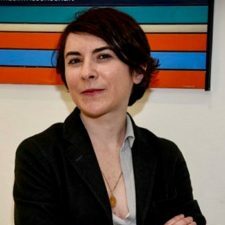 is Professor of Translation Studies in the Department of Translation, Lingusitics, and Cultural Studies at the Johannes Gutenberg University of Mainz. Her research interests encompass the construction of theories and concepts, the embeddedness of traditions of thought in Translation Studies with language and culture, the translation of academic texts, and intercultural communication in modern societies.
is Professor of Translation Studies in the Department of Translation, Lingusitics, and Cultural Studies at the Johannes Gutenberg University of Mainz. Her research interests encompass the construction of theories and concepts, the embeddedness of traditions of thought in Translation Studies with language and culture, the translation of academic texts, and intercultural communication in modern societies.
Relevant Publications:
- “Theoretische Überlegungen zum Verhältnis Übersetzung(swissenschaft) und Geschichte”. In Politiken der Translation in Italien. Wegmarken einer deutsch-italienischen Übersetzungsgeschichte vom Risorgimento bis zum Faschismus. Ed. L. Heller, A. Gipper und R. Lukenda. Stuttgart: Steiner Verlag (Studien zur Übersetzungsgeschichte 2), forthcoming.
- “Translaboration as legitimation of philosophical translation“. In Target 32, Nr. 2 (special issue Translaboration: Exploring Collaboration in Translation and Translation in Collaboration), 2020, 239–260.
- Heller, Lavinia and Andreas Gipper. “Philosophie und Übersetzung”. In Kants Schriften in Übersetzungen (Sonderheft 15 des Archivs für Begriffsgeschichte). Ed. Gisela Schlüter. Hamburg: Felix Meiner Verlag, 2020, 723–747.
- “Where does philosophy take place in translation? Reflections on the relevance of microstructural translation units within philosophical discourse”. In Chronotopos 2019, 147–172.
- “Philosophen übersetzen – Schleiermachers Platon und Marinis Heidegger. Zur Genese Methoden philosophischer Übersetzung”. In Über-Setzen. Sprachendiversität und interkulturelle Hermeneutik. Ed. Gabriele Münnix. Freiburg: Karl Alber, 2017, 253–275.
- “Heidegger (wieder) in Italien. Philosophische Translationsprozesse und Besitzansprüche auf einen Denker”. In Zibaldone – Zeitschrift für italienische Kultur der Gegenwart. Themenheft Übersetzungsland Italien 2015, 93–108.
Dr. Annett Jubara

Annett Jubara teaches in the Department of Translation, Lingusitics, and Cultural Studies at the Johannes Gutenberg University of Mainz. In 1988 she completed her diploma as philosopher and philosophy teacher in Rostov-on-Don in the USSR. From 1996 to 1999, she held a researcher position focused on the history of sexology at the Magnus Hirschfeld Society in Berlin, where she researched gender theory in the context of Russian symbolist literature. In 1997, she defended her dissertation on “Aleksej Losev’s Philosophy of Myth in the Context of ‘Russian Philosophy.’” Currently she is actively involved in various projects, including “All Good Things Come in Thirteen: Fairy Tales in Relay Translation” (2017-2019) and the Germersheim Translator Lexicon (since 2015).
Relevant Publications:
- “Philosophie als Translation.” In Kultur und Übersetzung. Ed. Lavinia Heller, transcript-Verlag, 2017, 215–34.
- “Mikhail Lifshits and the fate of Hegelianism in the 20th century.” In Studies in East European Thought 68, Nr. 4, 2016, 307–318.
- “Perevod very v znanie. Zizn‘ Iisusa D.F. Straussa v kontekste razvitija gegel’janstva” [Zur Übersetzung Glauben in Wissen: “Das Leben Jesu” D. F. Strauss im Kontext der historischen Entwicklung des Hegelianismus]. In Filosofija Gegelja: Novye perevody, issledovanija, kommentarii, Moskva 2014, 84–102.
- “Gottmenschentum und Menschgottum. Zur Übersetzung zweier religiös-philosophischer Konzepte aus dem Russischen ins Deutsche.” In Translationswissenschaftliches Kolloquium II. Beiträge zur Übersetzungs- und Dolmetschwissenschaft (Köln/Germersheim), Frankfurt a. M. etc.: Peter Lang, 2012, 9–28.
- Die Philosophie des Mythos Aleksej Losev im Kontext “Russischer Philosophie.” Philosophische und soziologische Veröffentlichungen der Freien Universität Berlin. vol. 30. Wiesbaden: Harrassowitz Verlag, 2000.
- “Fedor Stepun und die Philosophie des russischen Symbolismus.” In Differenz und Integration: Die Zukunft moderner Gesellschaften. Ed. Karl-Siegbert Rehberg, Wiesbaden: VS Verlag für Sozialwissenschaften, 1997, 884–887.
Prof. Judith Kasper
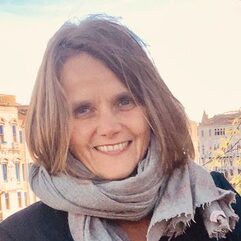
Judith Kasper is Professor of Comparative Literature at the Johann Wolfgang Goethe University of Frankfurt am Main. She studied German and Romance Languages and Literatures in Nizza, Göttingen, and Freiburg and completed her doctorate in 2001 at the Albert Ludwig University of Freiburg with a dissertation on “Languages of Forgetting: Proust, Perec, and Barthes between Loss and Memorialization” and then completed another dissertation in philosophy at the University of Verona in 2007 on “Trauma and Nostalgia: Through a Reading of the Concept of Heimat.” In 2015, she completed a habilitation on the topic of “Traumatized Space: Insistence, Inscription, Montage in Freud, Levi, Kerész, Sebald, and Dante” at the University of Potsdam. Her areas of interest are literary theory and aesthetics, trauma theories, and Holocaust Studies, philology, psychoanalysis, and theories of the lyric. She leads a research group based in Frankfurt, which centers on the concept of untranslatability.
Relevant Publications:
- “Zwischen den Sprachen. Philologie und Philoxenie”. In Lendemains Nr. 166/167, 2017, 90–96.
- Kasper, Judith and Cornelia Wild, Ed. Rom rückwärts: Europäische Übertragungsschicksale. Paderborn: Wilhelm Fink, 2015.
- “Schwindelerregende Türme. Übertragen und Übersetzen in Dekonstruktion und Psychoanalyse”. In Gutes Übersetzen. Neue Perspektiven für Theorie und Praxis des Literaturübersetzens. Ed. Albrecht Buschmann, Berlin: de Gruyter, 2015, 109–118.
- “Katastrophisches Lesen. Baudelaire in Buchenwald”. In Unfälle der Sprache. Literarische und philologische Erkundungen der Katastrophe. Ed. Ottmar Ette and Judith Kasper, Wien: turia+kant, 2014, 117–130.
Prof. Clemens Knobloch
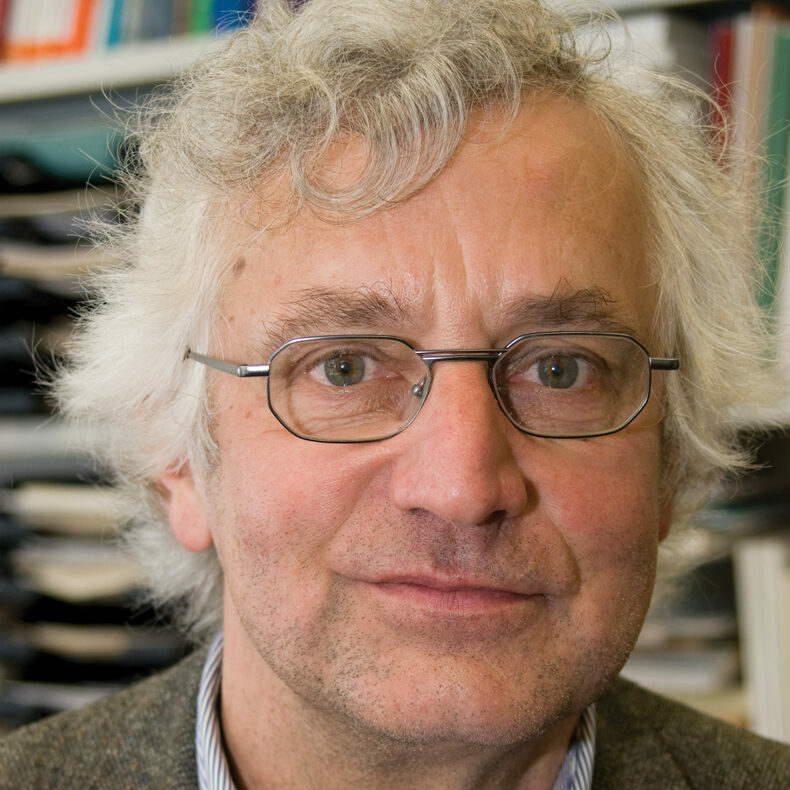
After earning his degree in German Studies and Communications in Bonn and Essen, Clemens Knobloch completed his doctorate in Communications in 1978/79. Afterwards he became a Research Fellow at the University of Siegen in 1980, where he completed his habilitation on the history of German linguistic psychology (Sprachpsychologie) in 1986/87. Since 1991 Clemens Knobloch has been Professor of Literary, Cultural and Media Studies at the University of Siegen, where he has been Professor Emeritus since April 1, 2016. His research interests are in the history of linguistics, public and political communication, psycholinguistics, language acquisition, language theory, and German grammar.
Relevant Publications:
- Umfelder des Sprechens. Siegen: Universitätsverlag Siegen, 2020.
- Hartz, Ronald, Tom Karasek, and Clemens Knobloch (Ed.) Inszenierte Konflikte – Inszenierter Konsens: Konflikt- und Einigkeitskommunikation in den Printmedien und Organisationen. Münster: Unrast, 2007.
- Feilke, Helmuth, Clemens Knobloch, and Paul-Ludwig Völzing (Ed.) Was heißt linguistische Aufklärung? Sprachauffassungen zwischen Systemvertrauen und Benutzerfürsorge. Wissenschaftskommunikation 1. Heidelberg: Synchron Wiss.-Verl. der Autoren, 2007
PD Fabian Link
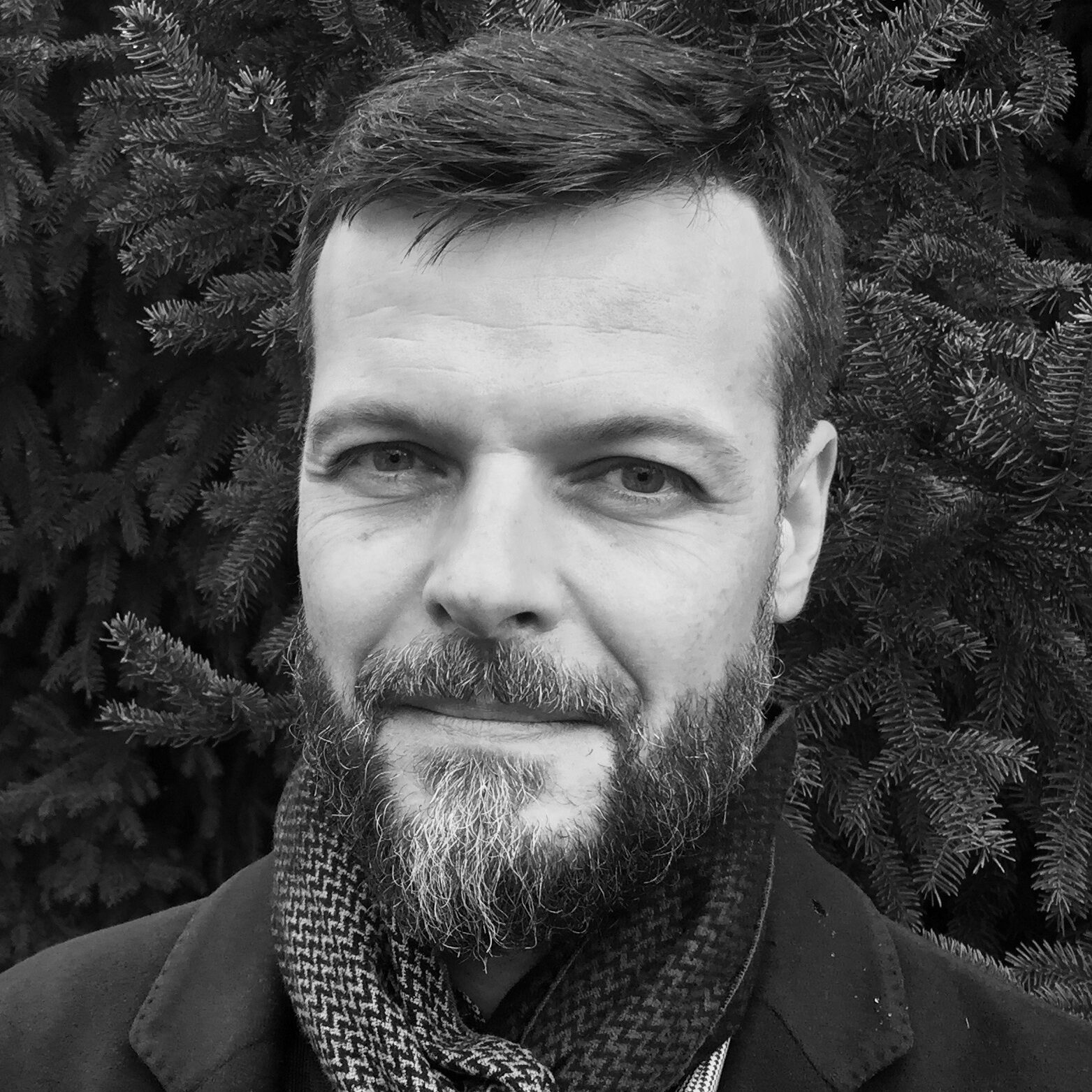
Fabian Link studied Modern and Medieval History, Ethnology, and Classical Archaeology at the University of Basel. Between 2009 and 2012, he has been a Research Fellow of the Research Project “Research on Castles 1933-1945,” sponsored by Swiss National Science Foundation. In 2012 he completed his doctorate in the Faculty of Humanities and Social Sciences at the University of Basel. Since November 2012, he has been Lecturer in the History Department of the Johann Wolfgang Goethe University in Frankfurt am Main. From 2012 to 2018, Fabian Link was an Academic Assistant in the Research Group led by Moritz Epple at the Goethe University, where he completed his habilitation on the history of the social sciences in West Germany during the early Cold War years. He is presently representing Prof. Volker Remmert, Professor of the History of Science and Technology in the History Department of the University of Wuppertal. His research interests include the intellectual history and the history of science in the twentieth century, with a focus on National Socialism and the Cold War, as well as theories and methods of historiography.
Relevant Publications:
- “Norbert Elias’s Struggle to ‘Civilise’ Translators: On Elias’s Frustrations with Being Translated and Interpreted”. In Circulation of Academic Thought – Rethinking Translation in the Academic Field. Ed. Raphael Y. Schögler, Berlin 2019, 161–183.
- Färber, Roland and Fabian Link (Ed.). Die Altertumswissenschaften an der Universität Frankfurt 1914–1950. Studien und Dokumente. Basel 2019.
- Dörk, Uwe and Fabian Link (Ed.). Geschichte der Sozialwissenschaften im 19. und 20. Jahrhundert: Idiome – Praktiken – Strukturen. Sozialwissenschaftliche Schriften, Vol. 51. Berlin 2019.
- “Sozialwissenschaften im Kalten Krieg: Mathematisierung, Demokratisierung und Politikberatung”. In H-Soz-Kult, 15.05.2018. Republished in Soziopolis, 13.06.2018.
- “Theoretische Übersetzungsprobleme und transatlantische Methodenerweiterung. Epistemischer Wandel in der Wissenschaftskultur des Instituts für Sozialforschung 1930 bis in die späten 1950er Jahre.” In Kultur und Übersetzung. Studien zu einem begrifflichen Verhältnis (Interkulturalität. Studien zu Sprache, Literatur und Gesellschaft). (Ed.) Lavinia Heller, Bielefeld 2017, 167–214.
- Burgen und Burgenforschung im Nationalsozialismus. Wissenschaft und Weltanschauung 1933–1945. Köln/Weimar/Wien 2014.
Prof. Friedrich Stadler
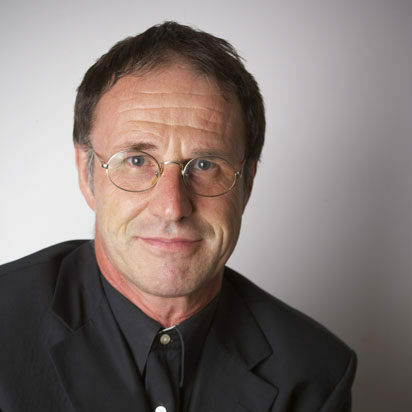
Friedrich Stadler studied philosophy, psychology, pedagogy, and history at the Universities of Graz and Salzburg, where he completed his magister in 1977 and his doctorate in 1982. From 1989 to 2018, he taught at the University of Vienna. In 1991 he founded the Vienna Circle Society, which was incorporated into the University of Vienna in 2011. In 1994, he completed his habilitation in the History and Theory of Science at the University of Vienna, where he became Associate Professor in 1997. From 2008 to 2016 Stadler has been Professor for History and Philosophy of Science at the University of Vienna. From 2001 to 2018 he has led the “Scientific World Conceptions” Summer School. He was the initiator and coordinator of the ongoing Masters program “History and Philosophy of Science” and a member of the corresponding FWF doctoral program. In 2014 he received the Decoration of Honor for Services to the Republic of Austria, in 2016 the Jan Patočka Medal of the Czech Academy of Sciences, and in 2017 the George Sarton Medal for History of Science from the University of Ghent. He has held guest professorships in Germany, the United States, and Finland. Stadler was president of the European Philosophy of Science Association (EPSA) and the Austrian Ludwig Wittgenstein Society. Currently Stadler is a permanent fellow of the Vienna Circle Society and a member of the Commission for the History and Philosophy of Science of the Austrian Academy of Sciences.
Stadler’s research interests include the history of modern science, philosophy of science, and theory of science; the history, theory, and methodology of cultural studies; cultural and intellectual history with a focus on German-speaking migration during the twentieth century, as well as the history of the University of Vienna.
Relevant Publications:
- Stadler, Friedrich "Der Wiener Kreis" In Enzyklopädie jüdischer Geschichte und Kultur, Dan Diner (Ed.): Vol. 6. J.B. Stuttgart; Weimar: Metzler Verlag, 2015.
- Christoph Limbeck-Lilienau und Friedrich Stadler, Der Wiener Kreis. Texte und Bilder zum Logischen Empirismus. Wien-Münster: LIT Verlag, 2015.
- Stadler, Friedrich (Ed.) Vertreibung, Transformation Und Rückkehr Der Wissenschaftstheorie: Am Beispiel Rudolf Carnap Und Wolfgang Stegmüller. Mit Einem Manuskript Paul Feyerabend Über "Die Dogmen Des Logischen Empirismus" Aus Dem Nachlass. Wien: LIT-Verlag, 2010.
- Stadler, Friedrich, (Ed.) Kontinuität und Bruch: 1938, 1945, 1955 ; Beiträge zur österreichischen Kultur- und Wissenschaftsgeschichte. Münster: LIT-Verl, 2004.
- Stadler, Friedrich, (Ed.) Vertriebene Vernunft: Emigration und Exil österreichischer Wissenschaft, 1930 - 1940. Münster: LIT-Verlag, 2004.
- Stadler, Friedrich. The Vienna Circle: Studies in the Origins, Development and Influence of Logical Empiricism. English ed. Wien, New York: Springer, 2001. 2nd Edition 2015.
- Stadler, Friedrich. Studien zum Wiener Kreis: Ursprung, Entwicklung und Wirkung des Logischen Empirismus im Kontext. Frankfurt/M. Suhrkamp, 1997. 2nd Edition 2015.
- Reihen-Ed.: Vienna Circle Institute Yearbook (Springer); Vienna Circle Institute Library (Springer); Veröffentlichungen des Institut Wiener Kreis (Springer); Moritz Schlick Gesamtausgabe (Springer, mit H.-J. Wendel); Ernst Mach Studienausgabe (Xenomoi); Emigration–Exil-Kontinuität. Schriften zur zeitgeschichtlichen Kultur- und Wissenschaftsforschung. LIT Verlag.
Prof. Sigrid Weigel
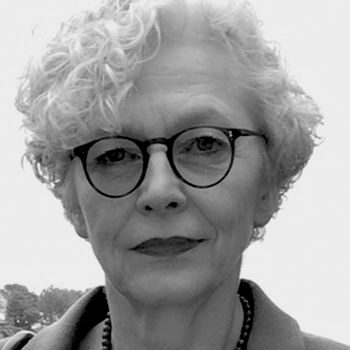
Sigrid Weigel is a scholar of Literary and Cultural Studies. With a thesis on “Berlin Pamphlet Literature of 1848,” Weigel completed her dissertation in the Literature Department of the University of Hamburg, where she became Professor in 1984. In 1990 Weigel became Chair of the Institute for Advanced Study in the Humanities in Essen, where she led the “Topography of Genders” research group, which helped establish cultural studies as a subject in German universities. In 1993 she received a professorship in Literary Studies in the German Department of the University of Zurich. From 1999 to 2015 Weigel served as director of the Center for Literary and Cultural Research in Berlin (ZfL) and as Professor at the Berlin Institute of Technology. In 2016 Weigel was recognized with the Aby Warburg Prize of the Hamburg Senate. Her research is focused on the relationship between science and literature, the cultural history of science, as well as European literature and culture, especially the work of Heinrich Heine, Ingeborg Bachmann, Hannah Arendt, Aby Warburg, and Walter Benjamin. Extending from her work on Hannah Arendt, she has lately been focusing on questions of self-translation.
Relevant Publications:
- “Self-translation and its discontents.” In Migrating Histories of Art: Self-Translations of a Discipline. Ed. Maria Teresa Costa and Hans Christian Hönes. Berlin: De Gruyter, 2018.
- “Per-sonare, poetische Differenz und Selbstübersetzung. Der Sound Hannah Arendts Denken und Schreiben.” In Hannah Arendt zwischen den Disziplinen. Ed. Ulrich Baer and Amir Eschel. Göttingen: Wallstein Verlag, 2014.
- “Sounding Through – Poetic Difference – Self-translation. Hannah Arendt’s Thoughts and Writings between Different Languages, Cultures, and Fields.” In Escape to life. German Intellectuals in New York. A compendium on Exile after 1933. Ed. Eckart Goebel and Sigrid Weigel. Berlin: De Gruyter, 2012.